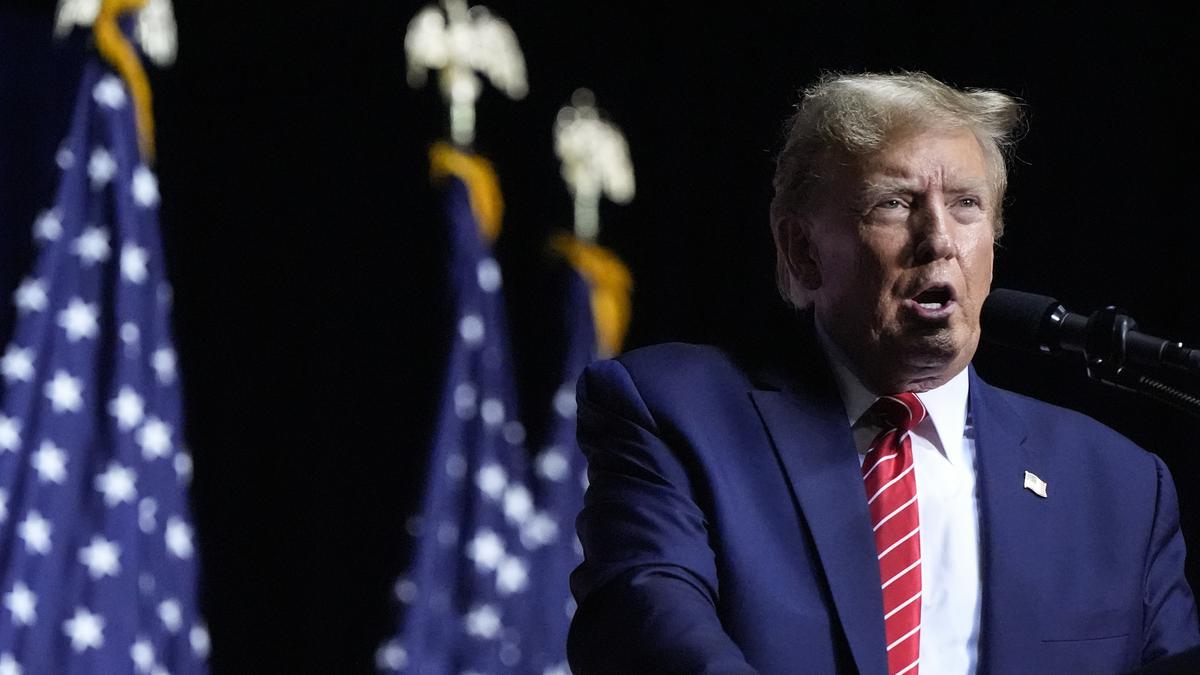
Donald Trump clinches GOP nomination for third consecutive U.S. Presidential election
The Hindu
Donald Trump clinches GOP nomination for third consecutive presidential election amid legal troubles and political turmoil.
Donald Trump, whose single turbulent term in the White House transformed the Republican Party, tested the resilience of democratic institutions in the U.S. and threatened alliances abroad, will lead the GOP in a third consecutive presidential election after clinching the nomination on March 12.
With wins in Georgia, Mississippi and Washington state, Mr. Trump surpassed the 1,215-delegate threshold needed to become the presumptive Republican nominee. He'll formally accept the nomination at the Republican National Convention in July, by which point he could be in the remarkable position of being both a presidential candidate and convicted felon. Mr. Trump has been indicted in four separate criminal investigations and his first trial, which centers on payments made to a porn actress, is set to begin March 25 in New York City.
Mr. Trump's victory in the GOP primary ushers in what will almost certainly be an extraordinarily negative general election campaign that will tug at the nation's already searing political and cultural divides. He'll face President Joe Biden in the fall, pitting two deeply unpopular figures against each other in a rematch of the 2020 campaign that few voters say they want to experience again.
About 38% of Americans viewed Mr. Trump very or somewhat favourably in a February poll conducted by the AP-NORC Center for Public Affairs, compared to 41% for Mr. Biden.
Mr. Trump is attempting to return to the White House after threatening democratic norms in the U.S. He refused to accept his loss to Mr. Biden in 2020, spending months grasping at baseless conspiracy theories of election fraud that were roundly rejected by the courts and his own attorney general. His rage during a rally on Jan. 6, 2021, helped rile up a mob of supporters who later violently attacked the U.S. Capitol in an effort to disrupt the congressional certification of Mr. Biden's win.
Only in the wake of the insurrection, with storefronts in the nation's capital boarded up and military vehicles parked on streets to prevent further violence, did Mr. Trump accept the reality that Mr. Biden would become president. He has since called Jan. 6 “a beautiful day” and aligned himself with those have been imprisoned for their actions — many for assaulting police officers — labeling them “hostages” and demanding their release.
Mr. Trump has been ambivalent about other basic democratic ideals during his 2024 campaign. He has not committed to accepting the results of this year's election and, during a December interview on Fox News, suggested he would be a dictator for the first day of a new administration. He has aligned himself with autocratic leaders of other countries, most notably Russia's Vladimir Putin and Hungary's Viktor Orbán.

 Run 3 Space | Play Space Running Game
Run 3 Space | Play Space Running Game
 Traffic Jam 3D | Online Racing Game
Traffic Jam 3D | Online Racing Game
 Duck Hunt | Play Old Classic Game
Duck Hunt | Play Old Classic Game

















